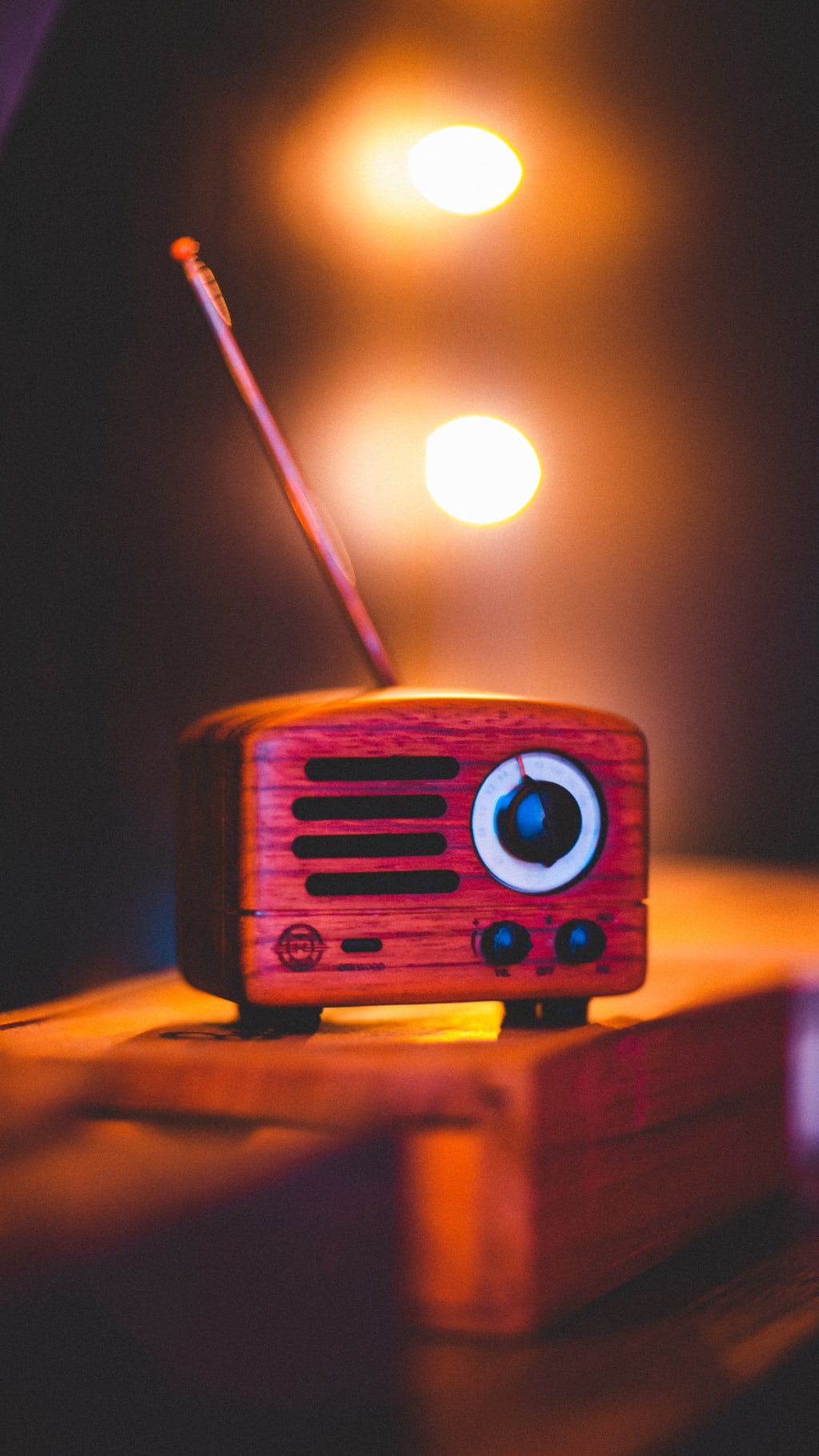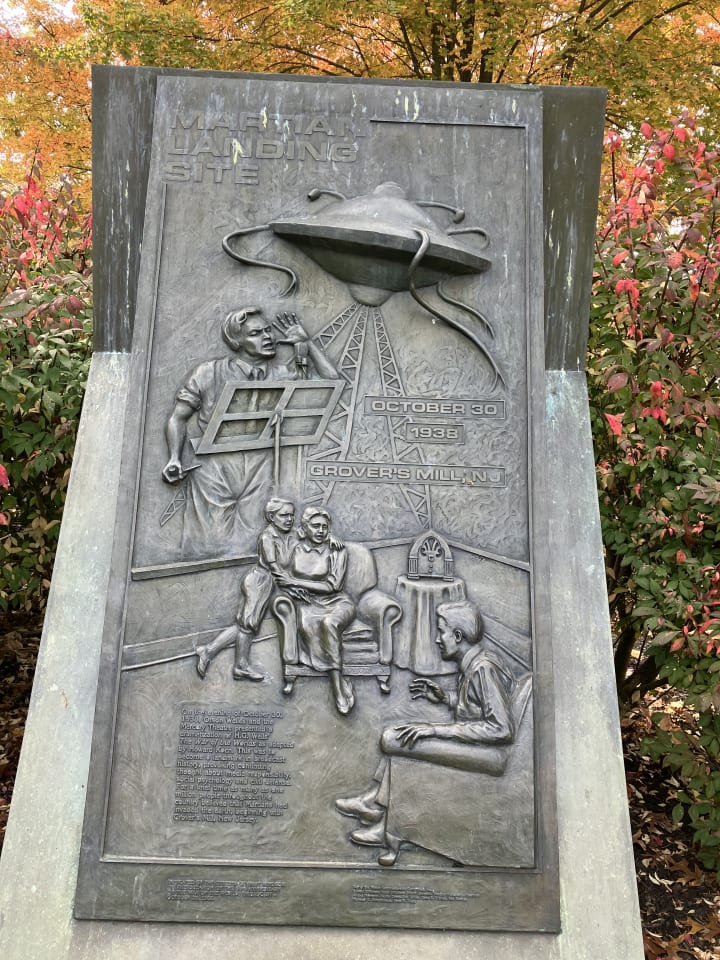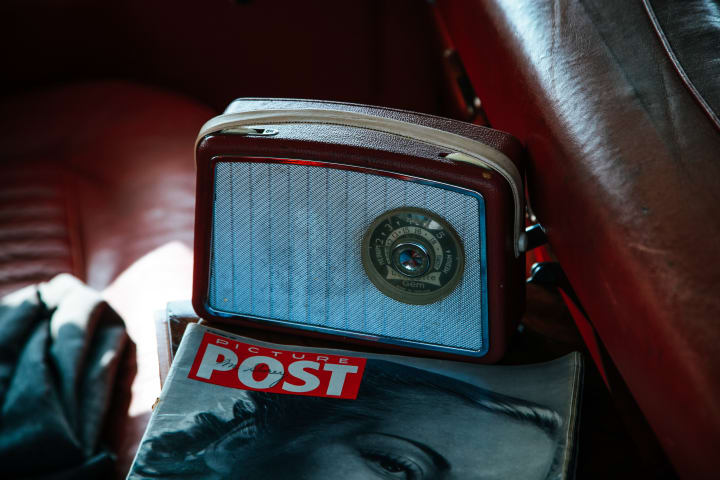Orson Welles and Martians Shaped My Teaching Career
My close encounters with radio's War of the Worlds in four acts

It’s been eighty-five years since Orson Welles and his Mercury Theater on the Air players frightened America with their radio broadcast making it sound, to listeners who tuned in after the introduction, like Martians were really landing in New Jersey.
It happened on Sunday, October 30th, and it was in the form of dramatized news interruptions of a fake musical program, which eventually became an adaptation of H.G. Wells’ 1898 science fiction novel, War of the Worlds.
I wasn’t there to hear the broadcast when it first aired, but as soon as I learned about it, I was fascinated. The story of the broadcast that pranked so many people revisited me every now and then for the next thirty years. I feel like it’s trying to tell me something.
Act One: A TV movie about a radio show of a science fiction book!
It started for me in 1975, when I was eight years old. It was almost Halloween. My grandmother, (my mom’s mother), along with my mom and I, decided to watch a brand new TV movie that had been advertised on ABC TV for weeks: The Night That Panicked America. Here is the original trailer and the first scene of the movie:
Did you notice “Mr. C.” (Tom Bosley) from Happy Days as the network guy? Grandpa from The Waltons (Will Geer) was in this too, playing a minister! Seeing actors from two of my favorite TV shows from TWO DIFFERENT NETWORKS in the same movie playing completely different people blew my little mind!
This was the first time I heard about this radio hoax that actually fooled many people into evacuating their homes and shooting guns at water towers.
At least that’s what happens in the movie.
I remember being fascinated, and a bit frightened, that grownups, no matter how long ago they lived, would believe Martians were landing just because they heard it on the radio.
My parents explained to me later that radio was very new back in the 1930s, and people were more innocent than those in the times we were currently in, the mid-1970s, shortly after the Vietnam War and Watergate.
The movie begins and ends with a shot of Earth seen from space, something no one in 1938 had seen, and audio from real radio news broadcasts that explains how people could have believed in a foreign, violent, grand scale invasion: we hear the voices of crowds screaming with adulation, followed by an angry sounding speech by Adolf Hitler.
Act Two: I meet the actual writer!
Fast forward to October 30, 1988, the fiftieth anniversary of the original War of the Worlds broadcast.
My father was the artistic director of a regional theater in New Jersey, not far from the “landing site” of the aliens in the 1938 broadcast. The legend is that the writer of the radio screenplay, Howard Koch, closed his eyes and let his pencil point land on a New Jersey map. That is how Grover’s Mill, NJ, then mostly farmland, became the location for Martian mayhem.

This was to be an Americanization of the original novel, in which the Martians land in England. Koch used scientists from Princeton University, the closest university to Grover’s Mill, as characters confirming the alien invasion in his script.
To mark the famous broadcast’s fiftieth anniversary, my dad’s theater company performed a live radio broadcast using the same script. I came home from college to attend the performance. People in the local area could listen to it live on the radio.
It was actually more difficult than I expected, sitting in the audience for the performance, because we were not allowed to make any sound — no laughing, clapping, applause, even coughing, if possible. This is because it was meant to simulate a radio production in a studio, not in a theater with a live audience.
I think I enjoyed the show, but I mostly remember feeling desperate to cough and sneeze the whole time.
The best part was the guest of honor: the eighty-seven year old author of the radio play, Howard Koch! I got to meet him at the party in the lobby after the performance. I don’t remember much about him, except that he seemed very happy and was fun to talk to. I remember laughing a lot at his recollections about Orson Welles and being a Hollywood writer decades before. He passed away in 1995.
Act Three: I get to be Orson Welles!
Just three years after this celebration of one of the most famous radio broadcasts in history, October 1991 found me in very different circumstances, student teaching in a fourth grade class. It was finally time for me to present my own lesson, with the classroom teacher watching, evaluating my performance.
I thought about the month it was, and how Halloween was coming soon, and memories of Orson Welles’ famous Halloween prank came to the rescue.
I remembered I had an old calendar featuring photos of old radios. All I needed was the original radio script, which I soon found at my college library. I had my lesson!

On observation day, I entered the classroom before the students and put an old radio calendar picture on each of twelve of the students’ desks. As they sat down, I asked the class what they were looking at. Some actually knew they were old radios. I then grabbed the old hardcover book containing Howard Koch’s radio play.
All I told them was, “On October 30th, the night before Halloween, in 1938, this is what many Americans heard on their radios.”
Then I pushed the play button on my tape cassette player. 1940s era swing band music poured out, thanks to my tape of the soundtrack from the 1988 film, Tucker, the Man and His Dream. Look it up. If you like old cars and Jeff Bridges, you’ll love this movie!
Yes, it was music produced in 1988 to sound like a 1940’s band, but it was the closest thing to 1930s music I had. Oh, what I could have done with YouTube!
Anyway, after a few seconds of the music, I turned off the tape player and began reading the radio play as a news reporter interrupting the program to talk about explosions viewed on Mars by scientists' telescopes.
I went on like that, alternating between music and radio bulletins, skipping a few scenes, until the Martians were out of their spaceship in Grover’s Mill, attacking people.
Then, I stopped and asked the class what they thought so far.
“Did that really happen?” asked one.
“What do you think?” I replied.
The students had mixed opinions.
I let them discuss their reasons for and against for a couple of minutes before I told them the truth. I then read some quotes from the newspaper articles that appeared all over the nation the day following the broadcast, including reports of mass evacuations, shootings, and at least one heart attack related death.
These articles later proved to be exaggerated and sometimes complete fiction, but there are still those who recall in interviews that they witnessed panic during the broadcast. There are some good documentaries on the subject on the internet.
My lesson back in 1991 became a lively discussion about radio and TV broadcasters’ responsibility to the public to tell them the truth, and not fool them with pranks. These fourth graders were learning about history and also evaluating the cost of dressing up entertainment as journalism. I hope they still remember that lesson, even if they don’t remember me.
Act Four: My Own Little “Mercury Theatre Players”:
By 2007, I was married with a child in, coincidentally, the fourth grade. I was a “parent volunteer” at the school, directing the “Fourth Grade Radio Drama Club”. What better radio play for them to perform than War of the Worlds?

I came up with the idea for a “Fourth Grade Radio Drama Club” because the club I started the year before that, the Third Grade Drama Club, proved to be chaotic and attracted some kids that weren’t interested in performing folk tales.
They were there because their parents weren’t ready to pick them up until two hours after school ended. Even my third grade child was not too thrilled to stay after school to act out folk tales we didn’t have to pay royalties for.
The following year, to weed out the non-serious fourth grade actors, I changed the meeting time of the club to BEFORE school. I also decided to teach them some media history by changing our theatrical plays to radio plays.
This would also cut down on students running around because there was no action to dramatize — just words and sound effects. The students had a great time finding and creating objects to make different sounds for our radio plays.
Our first production was of an actual radio script from the 1940s I found on the internet. It was an episode of the radio show, Planet Man, a science fiction space adventure series.
Our second production was scheduled to be performed the first week of April. "Now, what radio show could our club perform as an April Fool’s joke?" I wondered…
So on or around April 1st, 2008, the Fourth Grade Radio Drama Club actors gathered around a microphone in the school office. We got permission to use the mic the principal used to make announcements.
Some club members played some musical instruments for a couple of minutes, until one of the actors took over the mic with a news announcement about a Martian invasion. And so our April radio prank began on the school office Public Address System.
I’m not sure any of the elementary students were fooled, but the actors seemed to have a great time performing the story that H.G. Wells wrote nearly 110 years before and that came to life on the radio, thanks to Howard Koch, nearly seventy years before.
My students also learned something about early mass media and public gullibility.
I hope, in these strange times of radio and TV entertainment posing as news, and “news shows” presenting “alternative facts”, that my students, now adults, still remember what they learned with me in Fourth Grade Radio Drama Club.
Thank you Mr. Wells, Mr. Welles, and Mr. Koch!
____________________________________________________
This story was originally published on Medium.com.
About the Creator
Rebecca Morton
An older Gen X-er, my childhood was surrounded by theatre people. My adulthood has been surrounded by children, first my students, then my own, and now more students! You can also find me on Medium here: https://medium.com/@becklesjm






Comments
There are no comments for this story
Be the first to respond and start the conversation.